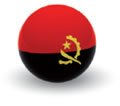Doing business transparently in Equatorial Guinea – Gómez de Mercado
The former Spanish colony of Equatorial Guinea may be one of Africa’s smallest countries, but it is now Africa’s third largest producer of oil and gas and seeing an increase in public infrastructure investment, says Francisco García Gómez de Mercado of EJ Gómez de Mercado Abogados in Madrid, which operates alongside local firm Ponciano Mbomio Nvó.
“Following the discovery of oil on the mainland, and of gas on the island of Bioko, where the capital Malabo is, Equatorial Guinea’s GDP has boomed since the 1990s. Consequently we are now seeing the government begin to remedy years of under-investment in roads, airports and other infrastructure.”
Government policy may still be focused on developing oil and gas production but however the revenues generated are now flowing to different parts of the economy, says Gómez de Mercado.
Much of the recent investment may be US-led, notably by the energy companies Marathon and ExxonMobil, and from France, but there is growing interest from elsewhere including now Spain.
“The rejection of the former colonial power no longer makes sense, and, on the contrary, the shared language, the preference for Spanish universities among the elite, and the legacy of the Spanish legal system all help to facilitate Spanish investment.”
Equatorial Guinea may have US-inspired hydrocarbon laws, and seen regulatory change following membership of the Organisation for the Harmonisation of Business Law in Africa (OHADA), but otherwise there have been few substantive legislative or political developments -the current goverment is much criticised for its human rights record- since independence in 1968, he says.
“Nonetheless, any investor has to remember that despite the rapid economic development this remains a very small Central African country. Hence, in addition to the usual preparedness, investment can be helped by the careful selection of local partners.”
He emphasises however that agreements need though to be solid and transparent before the present, and any potential future, authorities. “The nearly unique economic driver in Equatorial Guinea is hydrocarbons, which has significantly expanded the economy and, hopefully, will help to change many other aspects of the country as well.”












